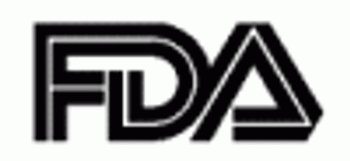
Avelumab (Bavencio) plus axitinib (Inlyta) is indicated for the first-line treatment of patients with advanced renal cell carcinoma.

Avelumab (Bavencio) plus axitinib (Inlyta) is indicated for the first-line treatment of patients with advanced renal cell carcinoma.

Procedure uses small incisions and a miniature video camera to reduce the risk of complications from surgery for lung cancer.

Kaposi sarcoma is a cancer caused by an associated herpesvirus that develops from the cells that line lymph or blood vessels, and most commonly affects individuals with HIV.

Pomalidomide (Pomalyst, Celgene) showed clinical benefit in patients with Kaposi sarcoma, regardless of HIV status.

Lisa Holle, PharmD, BCOP, FHOPA, associate clinical professor at the University of Connecticut, discusses recent key trials involving non-metastatic castrate-resistant prostate cancer.

From 2018 to 2040, the number of patients who will need chemotherapy each year is estimated to rise from 9.8 million to 15 million.

Ramucirumab (Cyramza, Eli Lilly) is approved as a single agent in patients with elevated alpha fetoprotein who have been previously treated with sorafenib.

This product is a generic version of Genentech's Tarceva.

Top news of the week from Specialty Pharmacy Times.

Study finds the number of patients who are eligible for and may respond to checkpoint inhibitor therapies is higher than for genome-driven therapies.

Eighty-three percent of physicians excising more-than-necessary amounts of tissue on a regular basis during Mohs micrographic surgery.

Top news of the day from across the health care landscape.

Matt Farber, MA, Senior Director of Patient Care and Advocacy at Walgreens discusses some of the ways that Walgreens is advancing care for patients with cancer.

Treatment with tagraxofusp yielded high response rates in patients with blastic plasmacytoid dendritic cell neoplasm.

Using genetic testing for women newly diagnosed with breast cancer can decrease the high cost of chemotherapy use in the first year of care.

A certain type of DNA rearrangement that is rarely tested for may be a predictor of prognosis in multiple myeloma.

Ado-trastuzumab emtansine (Kadcyla) is currently the only antibody-drug conjugate approved for the treatment of HER2-positive early and metastatic breast cancer.

Matt Farber, MA, Senior Director of Patient Care and Advocacy at Walgreens, talks about the growing role of specialty pharmacies in delivering cancer care.

Lisa Holle, PharmD, BCOP, FHOPA, associate clinical professor at the University of Connecticut, explains the importance of patient-provider communication during the 2019 Hematology/Oncology Pharmacy Association conference in Fort Worth, Texas.

Matt Farber, MA, Senior Director of Patient Care and Advocacy at Walgreens provided insight into new areas of technology that pharmacists can use to help improve care when treating patients with cancer.

Matt Farber, MA, Senior Director of Patient Care and Advocacy at Walgreens, discussed the role of specialty pharmacists in working to manage the cost burden of cancer care.

In this clip from the Hematology/Oncology Pharmacy Association, Alison Duffy, PharmD, BCOP, from the University of Maryland Greenbaum Comprehensive Cancer Center, shares important considerations in treating Chronic Lymphocytic Leukemia in patients.

The oncology drug pipeline has experienced rapid growth over the past decade, driven by innovation in cell therapies, immunotherapy, and precision medicine, according to a specialty pipeline update presentation at the Asembia Specialty Pharmacy Summit 2019.

Mouthwash containing diphenhydramine, lidocaine, and antacids found to significantly reduce pain from oral mucositis in patients with head and neck cancer administered chemotherapy.

Amber Draper, PharmD, BCOP, clinical pharmacist at Winship Cancer Institute discussed how biomarkers are used to make informed decisions in colorectal cancer treatment.

Alison Duffy, PharmD, BCOP, from UM Greenebaum Comprehensive Cancer Center, talks about some of the emerging agents in the chronic lymphocytic leukemia treatment landscape.

Lisa Holle, PharmD, BCOP, FHOPA, associate clinical professor at the University of Connecticut discusses the evolving role of genomics in the treatment of prostate cancer.

Investigators used a CRISPR technique to expose weaknesses in the acute myeloid leukemia enzyme that many drugs target.

The combination of selinexor and 4-OHT may be able to prevent endocrine resistance in hormone-responsive breast cancer by rewiring gene pathways.

This is the first indication for pembrolizumab (Keytruda, Merck) in advanced renal cell carcinoma.